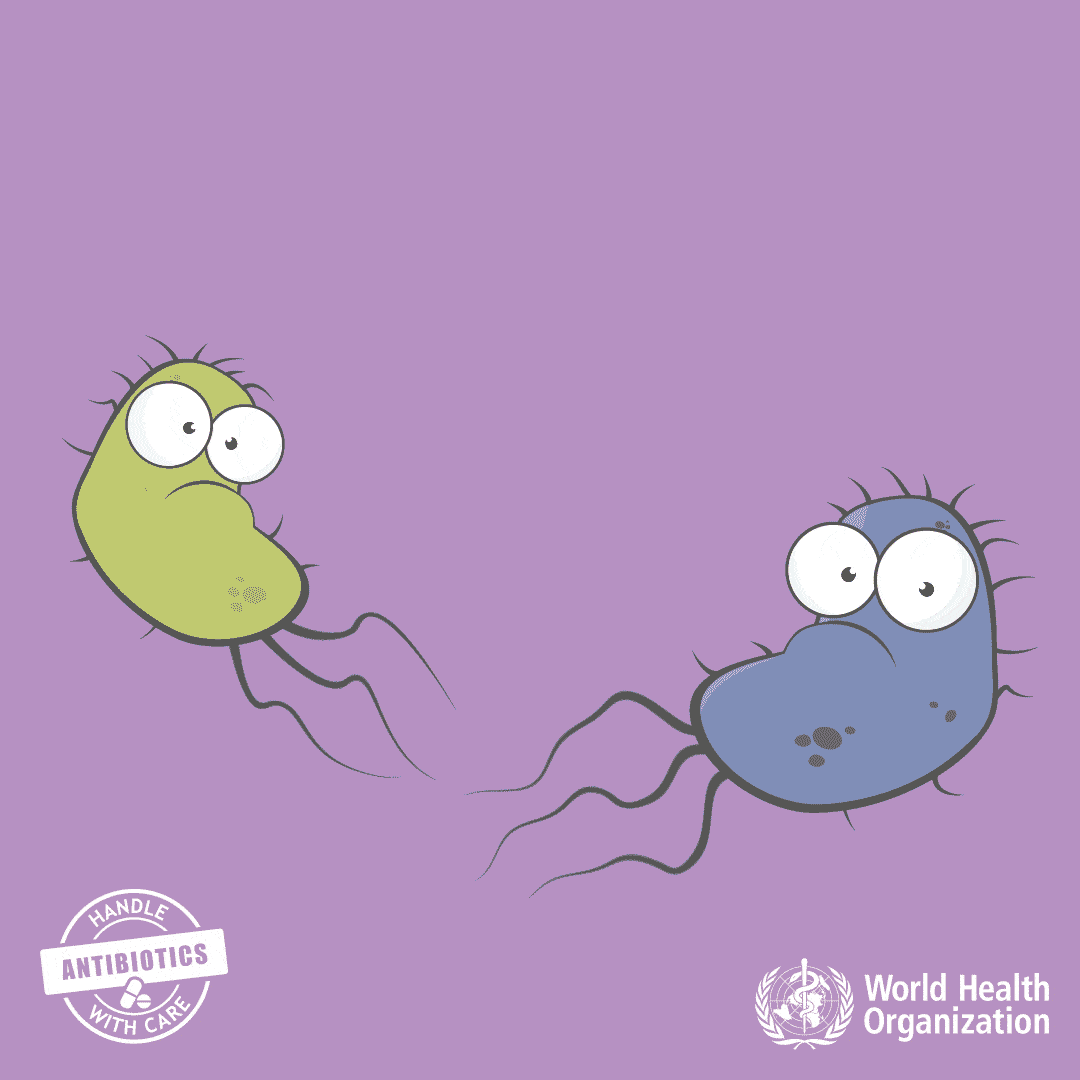The Antibiotic Paradox: How These Drugs Might Not Combat Bacterial Bugs

If you've ever suffered through a nasty cough that just won't quit, you're not alone. Coughing is one of the most common reasons people seek medical care, accounting for nearly 30 million office visits per year in the United States alone. And for decades, antibiotics have been the go-to treatment, prescribed in the hopes of knocking out any underlying bacterial infection. But what if these drugs, so relied upon by clinicians, are utterly ineffective against coughing illnesses?
A groundbreaking new study has upended conventional wisdom, casting doubt on the widespread use of antibiotics for coughing associated with lower respiratory tract infections (LRTIs) like bronchitis and pneumonia. This blog post will explore the surprising findings, their implications for antibiotic resistance, and the urgent need for a paradigm shift in how we manage coughs.
We'll dive into the research that revealed antibiotics show no measurable impact on cough severity or duration, even in cases of confirmed bacterial infection. Remarkably, patients recovered in the same timeframe whether they took antibiotics or not - a stark contradiction to the long-held beliefs driving overprescription.
The injudicious use of antibiotics is a double-edged sword, failing to provide therapeutic benefits while fueling the rise of superbugs resistant to our antimicrobial arsenal. As infectious disease experts grapple with this mounting crisis, the study reinforces that radically curbing inappropriate antibiotic use for LRTIs must be a public health priority.
But what alternatives do clinicians have? This post will examine the pressing need for novel, evidence-based approaches to cough management and controlling LRTIs without contributing to resistance. The path forward demands rethinking dogma and challenging long-entrenched practices.
The Miracle Drugs That Shaped Modern Medicine
In the early 20th century, a simple cut or scratch could prove fatal. Deadly infections ran rampant, and physicians were virtually powerless against the onslaught of bacterial invaders. That all changed with the revolutionary discovery of antibiotics - medicines that could kill disease-causing bacteria and save millions of lives.
The antibiotic era began in 1928 when Alexander Fleming famously noticed a mold contamination on a bacterial culture plate that created a bacteria-free zone. He identified the mold as the Penicillium genus and realized it must be secreting an antibacterial substance - the first true antibiotic was born. Fleming's penetrating insights earned him the 1945 Nobel Prize in Physiology or Medicine.
Penicillin's development marked a pivotal turning point, arming doctors with a new weapon against bacterial pneumonia, rheumatic fever, tuberculosis, and other previously unstoppable illnesses. Its deployment during World War II saved countless soldiers who might have otherwise succumbed to infected wounds. With antibiotic therapy, invasive surgeries became exponentially safer prospects.
In the decades since Fleming's seminal work, scientists have isolated over 100 different antibiotics from natural sources like soil bacteria and fungi. Some are broad-spectrum, effective against a wide range of bacterial pathogens, while others target specific strains. The most modern antibiotics are chemically synthesized to maximize efficacy and minimize resistance.
Thanks to these drugs, bacterial diseases that were once death sentences like syphilis, gangrene, and bacterial meningitis could finally be reliably cured. Organ transplants became viable due to antibiotics suppressing rejection. Premature infants had a fighting chance when antibiotic treatment overcame infections their immature immune systems couldn't fend off alone.
Antibiotics enabled medical wonders by reducing risks from commonplace infections, but their incredible versatility extends well beyond the clinic. They've been instrumental in agricultural growth, protecting high-yield food crops from bacterial blights, wilts, and rots that could have triggered widespread famines. Antibiotics have even found use in targeted cancer therapies by weakening antibiotic-resistant bacteria engineered to destroy tumor cells.
While the origin story began with a moldy petri dish, antibiotics have become integral to virtually every aspect of modern medicine and science over the past century. Innovations in sourcing and production continue advancing their scope. However, their meteoric rise has revealed new challenges - antibiotics are a finite resource, and pathogens are rapidly evolving to outwit them. This miracle drug's long-term viability hinges on more judicious use preserving its effectiveness for generations to come.

Antibiotics and Cough Management: Challenging Conventional Wisdom
For decades, the traditional approach to treating coughs and bronchial illnesses has relied heavily on antibiotics. Whenever a stubborn, persistent cough develops - potentially signaling an underlying lower respiratory tract infection (LRTI) like bronchitis or pneumonia - clinicians have instinctively reached for these medications. The prevailing belief held that antibiotics could help resolve the infection driving the cough and provide symptomatic relief.
However, a pioneering new study published in the Journal of General Internal Medicine has delivered a startling reality check. It found that antibiotics show no significant impact whatsoever on cough severity or duration, even in cases with confirmed bacterial infections.
No Impact on Cough Severity or Duration
This multi-site research thoroughly analyzed outpatients presenting with acute cough and LRTI symptoms across primary care and urgent care clinics. Researchers collected respiratory specimens to definitively identify bacterial and viral pathogens. Then they meticulously tracked participants' cough scores, severity ratings, and recovery times.
Shockingly, the data revealed no discernible differences in outcomes between those treated with antibiotics and those who didn't receive them. Cough frequency, intensity, and longevity followed essentially identical trajectories regardless of antibiotic usage. This undermines one of the core premises behind widespread antibiotic prescribing for bronchial illnesses.
Antibiotics Prescribed Despite Lack of Efficacy
Despite the complete lack of evidence showing any cough-resolving benefits, a substantial 29% of LRTI patients were prescribed antibiotics during their initial clinic visits. This degree of excessive antibiotic use appears catalyzed by perceived patient expectations and diagnostic uncertainty surrounding bacterial versus viral sources.
Physicians may feel pressured to "do something" for an acute bronchial cough and lean towards writing an antibiotic prescription just in case bacterial infections are involved. However, this approach perpetuates a vicious cycle of overutilizing antibiotics with no therapeutic payoff.
Time to Recovery: Antibiotics vs. No Antibiotics
Most strikingly, the study found no difference in the length of time it took for coughs to fully resolve whether antibiotics were taken or not. Both groups recovered from their acute bronchial illnesses within approximately 17 days on average.
This unambiguous lack of benefit calls into question the value and appropriateness of prescribing antibiotics for LRTIs in an outpatient setting. Not only do these drugs provide no cough relief, but their overuse drivers antibiotic resistance - a formidable public health threat.
The findings underscore an urgent need to revisit treatment protocols and curb ingrained prescription inertia. If cough duration, severity, and recovery aren't improved by antibiotics, their risks arguably outweigh any potential benefits for bronchial illnesses. This challenges clinicians to explore evidence-based alternative approaches focused on maximizing symptomatic relief while allowing respiratory infections to resolve naturally when harmless.
The Antibiotic Resistance Concern: A Ticking Time Bomb
The study's findings exposing the inefficacy of antibiotics for cough management coincide with a growing public health crisis - the rise of antibiotic-resistant bacteria. These "superbugs" have developed defenses that render many conventional antibiotics powerless against them. What's fueling this dangerous evolution? The rampant overuse and misuse of antibiotics themselves.
Overuse Fuels Resistance
Every time antibiotics are prescribed unnecessarily or improperly, it adds selective pressure driving bacteria to develop gene-based resistance mechanisms. The more bacteria get exposed to antibiotics, the more opportunities they have to mutate and share those protective traits. Overprescribing antibiotics for viral illnesses they can't treat accelerates this process.
The findings that antibiotics provide zero benefit for cough resolution, even with bacterial bronchial infections, reveal a major contributor to antibiotic overuse. An estimated 30% of outpatient antibiotic prescriptions may be inappropriate, substantially catalyzing the emergence of resistant superbugs.
As these strains spread and flourish, they continually diminish the efficacy of our antibiotic inventory. Diseases that were once easily cured are regaining their fatal potential due to pan-resistant bacteria. Already, over 35,000 Americans die annually from untreatable superbug infections according to the CDC - Centers for Disease Control and Prevention
Challenges in Differentiating Viral and Bacterial Infections
Part of the challenge driving excessive antibiotic prescribing stems from diagnostic ambiguity in distinguishing viral versus bacterial bronchial infections. Since viruses cause the majority of acute bronchitis cases, antibiotics are often unnecessary. However, bacterial pneumonia necessitates aggressive antibiotic intervention.
For illnesses like bronchitis and other lower respiratory tract infections (LRTIs), symptoms alone make it extremely difficult to pinpoint the underlying pathogen. Coughs, phlegm production, wheezing and malaise can have both viral and bacterial sources. Physicians may justifiably struggle with ruling out potentially serious bacterial LRTIs.
This prognostic uncertainty fuels "defensive" prescribing where antibiotics get supplied just in case a bacterial component is present. But this overcautious approach comes at the cost of dispensing drugs that may provide no benefit while propelling antibiotic resistance.
Wider deployment of rapid viral/bacterial diagnostic testing could help curb imprecise prescribing by identifying infections that won't respond to antibiotics. However, these advanced tests remain underutilized in many clinical settings due to accessibility, costs and logistical hurdles.
Compounding the challenge, lack of clear clinical guidelines on treating uncomplicated bronchitis often leaves prescribing decisions to individual physician judgment. More robust, evidence-based protocols could steer clinicians away from inappropriate antibiotic use when alternatives like symptom relievers may be more prudent.
Reversing antibiotic overuse for conditions like acute bronchitis is a critical priority if we hope to preserve the efficacy of our remaining antibiotics. Unless prescribing habits adapt, the rise of unstoppable superbug infections will only continue accelerating - jeopardizing millions of lives.

The Need for Further Research: Advancing Cough Management
While the recent study provides compelling evidence against using antibiotics for cough relief, it also exposes major gaps in our understanding of how to properly treat bronchial illnesses and coughing episodes. To overcome ingrained prescription habits and develop more effective therapeutic approaches, much more research is desperately needed. Two key areas requiring further scientific investigation are:
Understanding Cough Mechanisms
On the surface, a cough seems like a straightforward reflex response - something irritates the respiratory tract, sending signals that trigger powerful expulsive exhales to clear it. However, the coughReflex is a remarkably complex neurophysiological mechanism involving multiple neural pathways and chemical mediators.
Despite its prevalence and potential seriousness when severe or chronic, we still have an incomplete picture of what exactly initiates, modulates and perpetuates coughing at a molecular and neurological level. A more comprehensive model is required to create therapies precisely targeting the root neurobiological drivers.
Deeper research probing the cough reflex arc, receptor interactions, vagal afferent signaling, and CNS cough centers could yield insights opening new pharmacological frontiers. Understanding how inflammatory mediators like neuropeptides, cytokines, and neurotransmitters contribute to coughing severity and frequency is another key area ripe for investigation.
The more granular our knowledge becomes about cough neurobiology and triggering pathways, the better positioned scientists will be to design novel drugs or treatment modalities providing direct, potent anti-tussive effects beyond symptom masking.
Exploring Alternative Treatments
Given the lack of efficacy with antibiotics, the inadequacy of over-the-counter cough suppressants and medicines, and the harsh side effects of many prescription tussives, a pressing need exists for exploring alternative therapeutic options.
One emerging area of research is the potential for neuromodulation to disrupt cough neural circuitry. Electrical stimulation of vagus and phrenic nerves has shown promise in animal models and early clinical trials for reducing cough frequency and intensity. However, more investigation is needed into optimal stimulation parameters, patient screening, and long-term effects.
Other treatment avenues garnering interest include anti-tussive monoclonal antibodies targeting specific inflammatory mediators, TRPV1 receptor agonists/antagonists modulating cough hypersensitivity, and even novel applications of existing drugs like gabapentinoids and sodium channel blockers.
With coughing contributing to diminished quality of life, disease complications, and billions in healthcare expenditures annually, the impetus for better interventions cannot be overstated. Large-scale clinical trials directly comparing existing and experimental therapies head-to-head are crucial for establishing evidence-based treatment guidelines.
Cough research has long been underfunded relative to its substantial socioeconomic impacts. By prioritizing investment into uncovering fundamental cough biology while vetting new therapeutic candidates, immense strides can be made toward more effective, personalized cough management. This is the path forward to improving outcomes and quality of life for the millions afflicted with chronic, uncontrolled coughing.

Conclusion
The recent study shattering long-held beliefs about antibiotic efficacy for cough treatment is a pivotal wake-up call. It underscores just how much we have to re-evaluate ingrained practices surrounding respiratory illness management. Overprescribing antibiotics with no therapeutic benefit is not only wasteful, but actively hazardous by driving antibiotic resistance.
While antibiotics have been modern medicine's greatest double-edged sword, we cannot let these drugs go to waste through flagrant misuse. Mounting an evidence-based counteroffensive against excessive antibiotic prescribing for bronchial illnesses must be a top public health priority. This fight demands revamping treatment protocols, harnessing better diagnostics, and investing into cutting-edge cough research illuminating the path to genuine cough relief.
Only through a steadfast commitment to judicious stewardship can we preserve antibiotics' lifesaving potential for future generations. The intertwined plagues of uncontrolled coughing and unchecked antibiotic resistance require innovative solutions guided by rigorous science, not archaic dogma. This fundamental reappraisal is vital for safeguarding remedies we've recklessly taken for granted.
Key Takeaways:
- Antibiotics provide no measurable benefits for cough severity, duration or recovery time.
- Nearly 30% of bronchial illness patients are prescribed unnecessary antibiotics.
- Antibiotic overuse for cough is a major driver of antibiotic resistance.
- Distinguishing viral vs bacterial bronchial infections based on symptoms alone is extremely difficult.
- Defensive overprescribing of antibiotics "just in case" compounds antibiotic misuse.
- Understanding core mechanisms driving the cough reflex is critical for developing better treatments.
- Neuromodulation and new drug classes show promise as potential anti-tussive therapies.
- Large head-to-head clinical trials are needed to establish evidence-based cough guidelines.
- Cough research has been historically underfunded relative to its healthcare burden.
- Preserving antibiotic efficacy requires judicious stewardship and challenging outdated practices.

Thank you for reading this post!
If you found it helpful or informative, please consider sharing a 7 day free trial with your friends, family, or colleagues who might benefit from it.
Your support helps me reach more people and spread awareness on important topics like this. Together, we can make a difference!
References
https://www.ncbi.nlm.nih.gov/pmc/articles/PMC4240113/
https://my.clevelandclinic.org/health/articles/21655-antibiotic-resistance
https://www.bmj.com/content/357/bmj.j2148
https://www.ncbi.nlm.nih.gov/pmc/articles/PMC2084132/
https://erj.ersjournals.com/content/38/1/112
https://www.ncbi.nlm.nih.gov/pmc/articles/PMC9307097/
https://www.ncbi.nlm.nih.gov/pmc/articles/PMC4232501/
https://www.cdc.gov/drugresistance/about.html
https://www.cdc.gov/antibiotic-use/antibiotic-resistance.html
https://www.ncbi.nlm.nih.gov/pmc/articles/PMC8542731/
https://www.ncbi.nlm.nih.gov/pmc/articles/PMC9126572/
https://bjgp.org/content/73/728/e156
https://www.cdc.gov/antibiotic-use/clinicians/adult-treatment-rec.html
https://my.clevelandclinic.org/health/articles/4022-upper-respiratory-infection
https://thorax.bmj.com/content/56/2/109
https://www.who.int/news-room/fact-sheets/detail/antimicrobial-resistance
https://bmjopen.bmj.com/content/6/10/e012244
https://www.aafp.org/pubs/afp/issues/2022/1200/patient-information-antibiotics-uris.html




